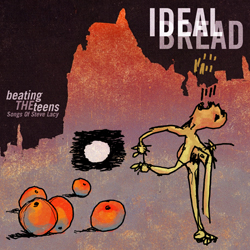Shiki
Oscar Noriega, Briggan Krauss – Alto sax
Ellery Eskelin, Tony Malaby – Tenor sax
Andy Laster – Baritone sax
Natsuki Tamura, Herb Robertson, Steven Bernstein, Dave Ballou – Trumpet
Curtis Hasselbring, Joey Sellers, Joe Fielder – Trombone
Satoko Fujii – Piano
Stomu Takeishi – Bass
Aaron Alexander - Drums
Shiki is Satoko Fujii’s ninth album with her Orchestra New York, and for the occasion she’s brought back her collection of downtown all-stars. It’s a testament to Ms. Fujii’s tenacity and vision, and the regard with which the musicians must hold for her, that she’s been able to keep a core group intact for eighteen years.
The album continues in the vein of its predecessor, Eto, in that the title composition plays more of a supportive role rather than standing out for its theme. Shiki, which means “four seasons”, presents a series of long simple motifs that rise and fall like the swell of waves, constantly building and releasing tension. The composition serves as a backdrop, framing a series of explorations by individual soloists. Just when you think the band has lost its way, Fujii re-introduces a thematic thread to pull the performance back together.
Gen Himmel, which was the title track from Fujii’s most recent solo album, is a beautiful composition, given a somber, processional feel by the band, with aching interjections by a trumpeter, I assume Natsuki Tamura. Here his extended techniques work well to convey what comes across as profound grief for the loss of bassist Norikatsu Koreyasu, a member of Tamura’s Gato Libre quartet. The shortest of the tracks at less than seven minutes, it left me wanting more.
Bi Ga Do Da by Natsuki Tamura is a tribal romp, with slightly deranged vocal exhortations by the band of the rhythmic words that make up the title. Here the band is front and center, as opposed to any particular soloist, although Fujii does contribute some of her signature fractured piano runs, something that is kept to the background for most of the album.
Shiki, both the composition and the album as a whole, comes across as the trumpet section’s showcase, given the solos on the title track by Herb Robertson and Steve Bernstein, and for Natsuki Tamura’s contributions. They use a lot of extended techniques, and I found myself wanting to hear a good “clean” trumpet sound for at least part of a solo, but that’s about my only quibble with the album.





